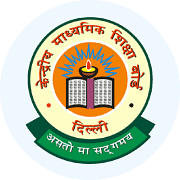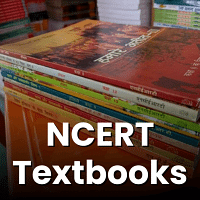CTET & State TET Exam > CTET & State TET Questions > A most important instrument of the developmen...
Start Learning for Free
A most important instrument of the development is
- a)Education
- b)Will power
- c)Religion
- d)None of these
Correct answer is option 'A'. Can you explain this answer?
| FREE This question is part of | Download PDF Attempt this Test |
Most Upvoted Answer
A most important instrument of the development isa)Educationb)Will pow...
Education is the most important instrument of development because it plays a crucial role in shaping individuals, societies, and nations. It has the power to transform lives, improve socio-economic conditions, and drive overall progress. Here's a detailed explanation of why education is the correct answer.
1. Enhances knowledge and skills:
- Education equips individuals with knowledge and skills that are essential for personal and professional growth.
- It provides a platform for learning various subjects, acquiring technical skills, and gaining practical knowledge.
- Education enables individuals to develop critical thinking, problem-solving, and decision-making abilities.
2. Empowers individuals:
- Education empowers individuals to make informed choices and decisions in their lives.
- It promotes self-awareness, self-confidence, and self-reliance.
- It enables individuals to overcome social barriers, discrimination, and inequality.
3. Promotes economic development:
- Education is closely linked to economic development and growth.
- It enhances productivity, innovation, and entrepreneurship.
- Educated individuals have better employment opportunities, higher income levels, and contribute to the economy.
4. Fosters social development:
- Education promotes social development by instilling values, ethics, and social responsibility in individuals.
- It promotes inclusivity, diversity, and social cohesion.
- Education plays a vital role in reducing poverty, inequality, and social disparities.
5. Improves health and well-being:
- Education has a direct impact on health and well-being.
- It promotes awareness about healthy practices, disease prevention, and healthcare access.
- Educated individuals are more likely to adopt healthy behaviors and make informed decisions regarding their well-being.
6. Drives technological advancements:
- Education is crucial for driving technological advancements and innovation.
- It fosters scientific thinking, research, and development.
- Educated individuals contribute to technological advancements and progress in various fields.
In conclusion, education is the most important instrument of development as it enhances knowledge and skills, empowers individuals, promotes economic and social development, improves health and well-being, and drives technological advancements. It is through education that individuals and societies can achieve their full potential and contribute to overall progress and prosperity.
1. Enhances knowledge and skills:
- Education equips individuals with knowledge and skills that are essential for personal and professional growth.
- It provides a platform for learning various subjects, acquiring technical skills, and gaining practical knowledge.
- Education enables individuals to develop critical thinking, problem-solving, and decision-making abilities.
2. Empowers individuals:
- Education empowers individuals to make informed choices and decisions in their lives.
- It promotes self-awareness, self-confidence, and self-reliance.
- It enables individuals to overcome social barriers, discrimination, and inequality.
3. Promotes economic development:
- Education is closely linked to economic development and growth.
- It enhances productivity, innovation, and entrepreneurship.
- Educated individuals have better employment opportunities, higher income levels, and contribute to the economy.
4. Fosters social development:
- Education promotes social development by instilling values, ethics, and social responsibility in individuals.
- It promotes inclusivity, diversity, and social cohesion.
- Education plays a vital role in reducing poverty, inequality, and social disparities.
5. Improves health and well-being:
- Education has a direct impact on health and well-being.
- It promotes awareness about healthy practices, disease prevention, and healthcare access.
- Educated individuals are more likely to adopt healthy behaviors and make informed decisions regarding their well-being.
6. Drives technological advancements:
- Education is crucial for driving technological advancements and innovation.
- It fosters scientific thinking, research, and development.
- Educated individuals contribute to technological advancements and progress in various fields.
In conclusion, education is the most important instrument of development as it enhances knowledge and skills, empowers individuals, promotes economic and social development, improves health and well-being, and drives technological advancements. It is through education that individuals and societies can achieve their full potential and contribute to overall progress and prosperity.
Attention CTET & State TET Students!
To make sure you are not studying endlessly, EduRev has designed CTET & State TET study material, with Structured Courses, Videos, & Test Series. Plus get personalized analysis, doubt solving and improvement plans to achieve a great score in CTET & State TET.

|
Explore Courses for CTET & State TET exam
|

|
Similar CTET & State TET Doubts
A most important instrument of the development isa)Educationb)Will powerc)Religiond)None of theseCorrect answer is option 'A'. Can you explain this answer?
Question Description
A most important instrument of the development isa)Educationb)Will powerc)Religiond)None of theseCorrect answer is option 'A'. Can you explain this answer? for CTET & State TET 2024 is part of CTET & State TET preparation. The Question and answers have been prepared according to the CTET & State TET exam syllabus. Information about A most important instrument of the development isa)Educationb)Will powerc)Religiond)None of theseCorrect answer is option 'A'. Can you explain this answer? covers all topics & solutions for CTET & State TET 2024 Exam. Find important definitions, questions, meanings, examples, exercises and tests below for A most important instrument of the development isa)Educationb)Will powerc)Religiond)None of theseCorrect answer is option 'A'. Can you explain this answer?.
A most important instrument of the development isa)Educationb)Will powerc)Religiond)None of theseCorrect answer is option 'A'. Can you explain this answer? for CTET & State TET 2024 is part of CTET & State TET preparation. The Question and answers have been prepared according to the CTET & State TET exam syllabus. Information about A most important instrument of the development isa)Educationb)Will powerc)Religiond)None of theseCorrect answer is option 'A'. Can you explain this answer? covers all topics & solutions for CTET & State TET 2024 Exam. Find important definitions, questions, meanings, examples, exercises and tests below for A most important instrument of the development isa)Educationb)Will powerc)Religiond)None of theseCorrect answer is option 'A'. Can you explain this answer?.
Solutions for A most important instrument of the development isa)Educationb)Will powerc)Religiond)None of theseCorrect answer is option 'A'. Can you explain this answer? in English & in Hindi are available as part of our courses for CTET & State TET.
Download more important topics, notes, lectures and mock test series for CTET & State TET Exam by signing up for free.
Here you can find the meaning of A most important instrument of the development isa)Educationb)Will powerc)Religiond)None of theseCorrect answer is option 'A'. Can you explain this answer? defined & explained in the simplest way possible. Besides giving the explanation of
A most important instrument of the development isa)Educationb)Will powerc)Religiond)None of theseCorrect answer is option 'A'. Can you explain this answer?, a detailed solution for A most important instrument of the development isa)Educationb)Will powerc)Religiond)None of theseCorrect answer is option 'A'. Can you explain this answer? has been provided alongside types of A most important instrument of the development isa)Educationb)Will powerc)Religiond)None of theseCorrect answer is option 'A'. Can you explain this answer? theory, EduRev gives you an
ample number of questions to practice A most important instrument of the development isa)Educationb)Will powerc)Religiond)None of theseCorrect answer is option 'A'. Can you explain this answer? tests, examples and also practice CTET & State TET tests.

|
Explore Courses for CTET & State TET exam
|

|
Suggested Free Tests
Signup for Free!
Signup to see your scores go up within 7 days! Learn & Practice with 1000+ FREE Notes, Videos & Tests.
























